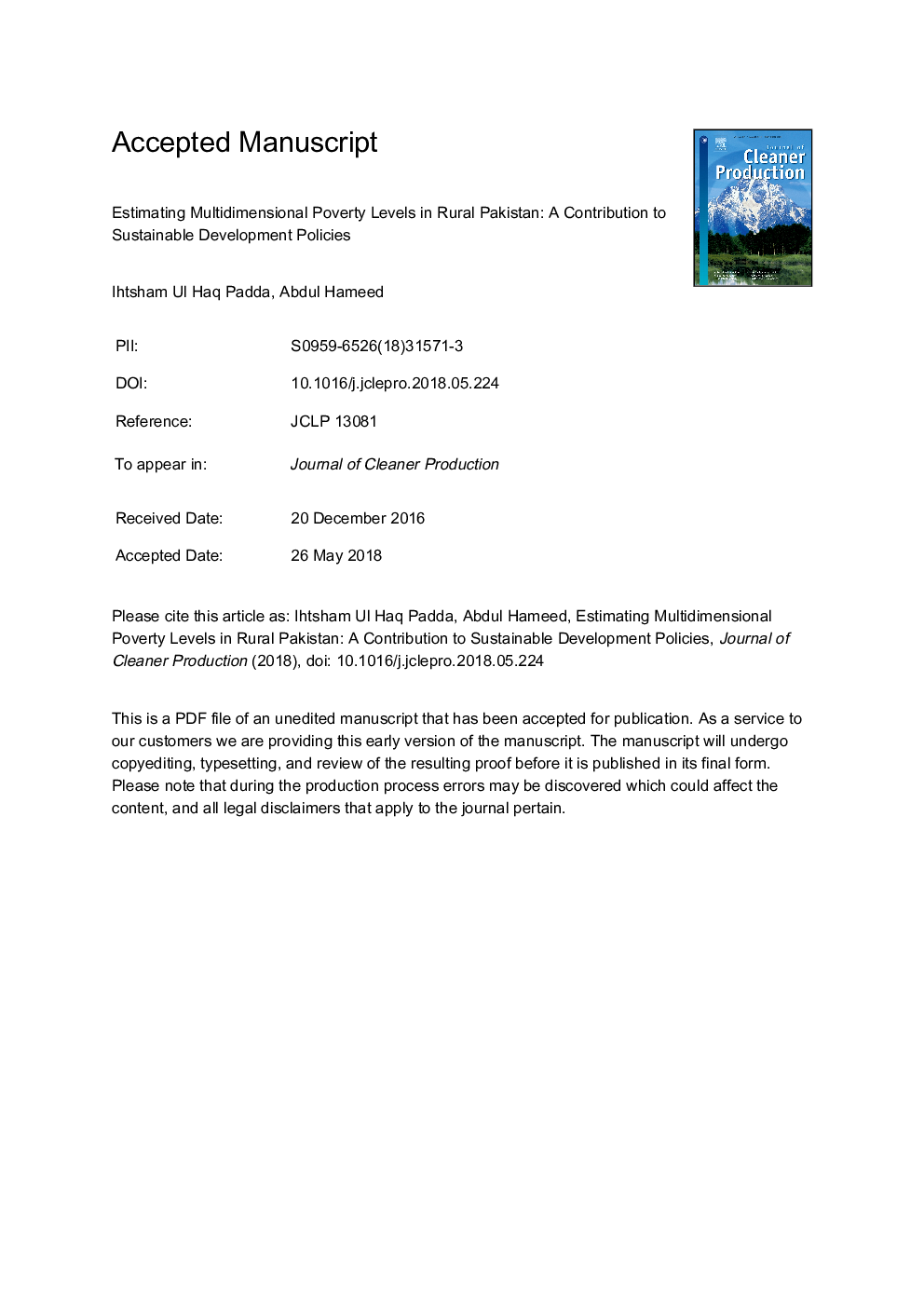| Article ID | Journal | Published Year | Pages | File Type |
|---|---|---|---|---|
| 8093895 | Journal of Cleaner Production | 2018 | 19 Pages |
Abstract
Poverty reduction is the foremost, imperative objective of sustainable development goals. Sustainable development is a crucial problem for the rural areas of Pakistan mainly associated with living standards, agriculture and nonagriculture assets, and environment indicators. This study aims to estimate multidimensional deprivation and poverty levels for rural Pakistan using data from the 2013 Pakistan Rural Household Survey (PRHS) and applying principal component analysis. The dimensions of deprivation have been identified by examining the following factors: agricultural and nonagricultural assets, housing, education, energy, sanitation, and access to clean drinking water. This study finds that 44% of households in rural Pakistan are living at the poorest and poor levels, enduring a lack of pure drinking water, inadequate sanitation facilities, poor housing conditions, polluted energy sources, and privation of economic resources. The district level analysis demonstrates that the rural populations of Hyderabad, Thatta, and Sangher are the poorest. Thus, to attain sustainable development and poverty reduction, additional funds from the federal, provincial, and local governments should be allocated for social welfare, education, sanitation, water supply, and agriculture development in rural areas of Pakistan. This study calls for a multidimensional policy approach targeting poverty reduction and sustainable development at the district level.
Related Topics
Physical Sciences and Engineering
Energy
Renewable Energy, Sustainability and the Environment
Authors
Ihtsham Ul Haq Padda, Abdul Hameed,
